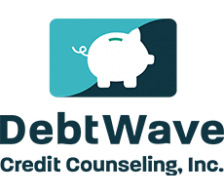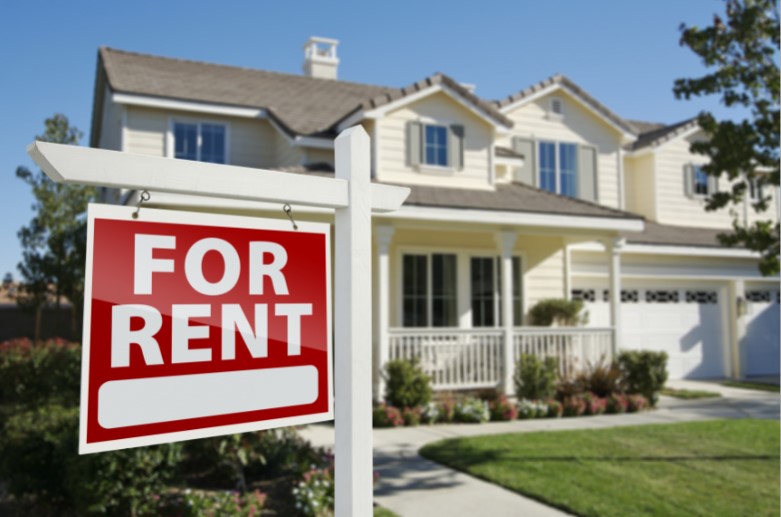In the personal finance world, there are some unspoken rules that those who are successful with their money seem to follow. One of those rules: Renting an apartment or home is a complete waste of money.
As a renter, this kind of financial success mantra more than scared me; it pushed me into a scarcity mindset where every time I paid my rent, I just imagined myself shoveling piles of money into a burning fire. I started panicking that I was living beyond my means and setting myself up for a lifetime of financial insecurity.
So you can imagine what a deep sigh of relief I took when I heard Eric Roberge, a Certified Financial Planner (CFP) and founder of Beyond Your Hammock, say that renting is not always a waste of money. I was more than just relieved, honestly, I was excited to know that in some financial circles, my decision to rent was actually, dare I say, financially savvy?
Roberge recently joined the Talk Wealth To Me crew for a podcast recording in which we had a conversation about this very topic of how renting is not always a waste of money; in fact, sometimes it’s the smarter financial move.
Below we’ve included five of the biggest takeaways from that episode.
Why Renting is Not Always a Waste of Money
-
Peer Pressure to Become a Homeowner
“People feel that if they own a home, they are doing better financially,” says Roberge. And society largely reinforces this idea over and over in our heads. So when we’re in our 30s and 40s and we’re not a homeowner, we start to panic.
We panic because we associate homeownership with long-term security, not just a roof over our heads. In most cases, this can be correct, Roberge noted. “However, if you’re purchasing a house and it’s more expensive than you can afford, things will start to fall apart very quickly.”
Roberge’s advice: Don’t put time pressure on yourself when it comes to buying a home.
“I bought my first home when I was 40 years old,” Roberge shared. “I am a certified financial planner, went to school for finance, worked at state street. JP Morgan was a financial planner for 10 plus years now. And I only bought my first home at age 40. I just want to make sure that it’s very clear here, which is the point being there is no timeline that you have to follow.”
“I didn’t buy my first home until I was 36,” added Chase Peckham, host of Talk Wealth To Me and Director of Community Outreach for the San Diego Financial Literacy Center. “I thought that I was going to buy my home, you know, I had it all planned out and I was going to own a home by the time I was 25, 30 or whatever it might be and nothing went the way I thought it was going to.”
-
Review Your Lifestyle
It’s really, really important to understand not only the affordability of buying a house but also what your lifestyle really looks like and what you want to be able to spend your money on other than your mortgage payment, Roberge recommends.
So for the person who is looking to understand rent or buy, you know, what can I afford?
- The first thing is, are you saving money right now?
- Are you saving into your retirement account?
- Are you getting the contribution, the match from your employer?
If you’re doing that and you might be saving elsewhere and you decide to rent vs own your place, go for it. That rent might allow you a couple of things.
- It might allow you to be in a city that you couldn’t otherwise afford to buy-in.
- It might allow you to cut down on your commute and save time every day to be more productive at work, to make more money.
- It might allow you to get a nicer place even then you would be able to afford to buy because there’s a big difference between renting a 1,000 square foot place just outside the city versus buying an apartment that is 500 square feet.
- Are you going to be happy living in the place? Just because you own it, you might feel good that you own it, but you’re going to feel comfortable.
- Are you going to be able to enjoy yourself?
- Are you gonna be able to have friends over?
If you own this place, you just have to really understand the lifestyle impact along with the financial impact of making this decision versus buy, buy versus rent.
“You have to look at what does my next five years look like? Will I be in the same place that I am today, physically? If you’re living in Boston now and you’re thinking about moving to California in two years, well then buying a house is absolutely not the thing to do because of the very short time period; it’s not going to be enough for you to benefit from owning a house,” Roberge said.
“You might find if you rent for a year, maybe you get it out of your system. Maybe you say, you know what? I loved living in the city. I love looking at the Harbor. I hated the noise because I couldn’t sleep at night and now I’m ready to go to the suburbs and afford more of a single-family home. And I’m okay making that commute. At least you’ve tried the different types of things and understood what you actually enjoy and then make the long-term commitment. After that.”
-
Lifestyle Downgrade
If you live in a high cost of living area such as New York, San Diego, or Boston a six-figure salary doesn’t guarantee that you can afford a house, which is nuts, but it’s the case.
This means you could find yourself having to downgrade your living situation in order to afford to become a homeowner vs renter, notes Felipe Arevalo, Community Outreach Coordinator for the San Diego Financial Literacy Center and host of Talk Wealth To Me. “I think sometimes that gets a little lost in the shuffle where people don’t realize that owning may not allow them the same freedom to live in the same area or continue the lifestyle that they have just because they make a home purchase,” Arevalo noted.
Roberge agreed.
“What people don’t take into account, they might say that while I can rent or buy, and it’s going to cost me X amount in either case with rent, the most you’re going to pay on a monthly basis is your rent. When you’re a homeowner, you’re paying your mortgage, principal, interest taxes, and insurance on a monthly basis.
Additionally, you’re going to have to pay to fix a leak or a broken window or fix a furnace or refrigerator. Roberge estimated homeowners usually spend between one and 4 percent of their home value on repairs, which he notes could be equivalent to the sum you may have spent going out to dinner and enjoying time with friends.
“And now you can’t do those things because you’re house poor. So although you might feel great about owning the house, you’ve reduced your lifestyle so much that you might be a little sad that you’re now just sitting in your house, not being able to go out and enjoy things like you used to with your buddies,” Roberge said.
Peckham agrees it can be painful to realize you bit off more house than you can afford and now you don’t have the funds to do anything but be in your house.
“I don’t know how many people I have talked to that have gotten themselves into their homes, in this neighborhood that they think they want to be, and they’re spending well above 50 percent of their income to just pay this mortgage,” Peckham said. “And they find themselves not going on vacations anymore. They’re not getting their kids into extracurriculars like soccer and baseball, travel sports, dance, or anything else because they’re so strapped into making the mortgage payment every single month.”
-
Practice First
It’s the fear of the unknown that is oftentimes the most fearful thing for people, whether you’re dealing with money or a health situation or an economic environment or an upcoming election. It’s the fear of the unknown. That is so, so scary. It’s not like once, you know, then you can take action, but until, you know, you’re just afraid. So when it comes to finances, Roberge often recommends putting on your training wheels first.
“If you are in a situation where you’re renting and you know that when you buy, it’s going to be more expensive because the area you’re buying in is more expensive, plan now, or practice now,” Roberge said. “Practice paying the amount of money that you will have to pay to move into that area, to see if you can afford it, to see if you’re stressed financially speaking, by doing so. Because if you realize ‘oh, there’s a lot more money going out the door than I thought’ even though you’re just moving the money to your savings account, you may not want to make that move or financial commitment.”
But if you go through the next six months and you feel like, yeah, we can still afford to live this way because we still have money and we can still afford to save money, then maybe it is a good move for you. There’s no reason you can’t practice first.
-
Renting Without Saving IS a Waste of Money
Renting is not a waste of money as long as you’re also able to save money to be able to afford your life now and in the future, Roberge says.
So is there a time when renting would be considered a “waste” of money?
If you’re not saving enough money to establish an emergency fund, retirement savings, and you don’t have equity in the home, that’s not a good place to be, Roberge said.
Renting a home without saving money is a lot different than owning a home and not saving money. A lot different.


